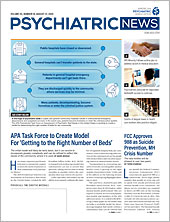The United States life expectancy rate has decreased for three consecutive years since 2015 as more people die due to what are collectively known as the deaths of despair: suicide, alcohol use, or drug use.
Yet according to a study published in JAMA Psychiatry, religious service attendance may reduce the risk of deaths of despair, at least among health care professionals.
“While the term ‘death of despair’ was originally coined in the context of working-class Americans struggling with unemployment, we believe despair is a phenomenon that is relevant more broadly and can confront anyone dealing with difficult times in life,” lead author Ying Chen, Sc.D., an empirical research scientist with the Human Flourishing Program at Harvard’s Institute for Quantitative Social Science, said in an email.
Chen and her colleagues analyzed data from two ongoing studies of United States health professionals: the Nurses’ Health Study II (NHSII), which includes female registered nurses, and the Health Professionals Follow-Up Study (HPFS), which includes male health professionals. In both cohorts, participants receive biennial followups. The researchers used NHSII data from 2001 to 2017 and HPFS data from 1998 to 2014.
Participants in both cohorts provided details on their religious service attendance through surveys they answered at the beginning of their respective studies. They were asked, “How often do you go to religious meetings or services?” Responses were categorized as never, less than once per week, and at least once per week.
The researchers also collected information on causes of death from death certificates and medical records. Deaths of despair included deaths from chronic liver diseases and cirrhosis, suicide, unintentional poisonings by alcohol, and overdose of prescription and illegal drugs. Participants who did not respond to the baseline survey and those who died or had a diagnosis of cardiovascular disease or cancer before baseline were excluded.
Among the 66,492 female NHSII participants included in this study, 75 deaths of despair were identified, while there were 306 deaths of despair among the 43,141 male HPFS participants. Compared with participants who never attended religious services, those in the NHSII cohort who attended at least once a week had a 68% lower risk of deaths of despair, while those in the HPFS cohort had a 33% lower risk.
The authors noted numerous reasons why attending religious services may reduce the risk of deaths of despair. Religious activity may enhance social integration and community participation, as well as purpose, hope, and meaning within suffering, Chen said.
The reason for the gender difference in risk remains unclear, Chen said. “However, we hypothesized that the different effect sizes may reflect potential sex differences in the social and emotional experiences during service attendance or in the extent of participation for those who report attending services weekly,” she said.
John R. Peteet, M.D., former chair of APA’s Caucus on Religion, Spirituality, and Psychiatry, an associate professor of psychiatry at Harvard Medical School, and co-author of Religious and Spiritual Issues in Psychiatric Diagnosis (APA Publishing), suggested that the positive impact of spiritual virtues on relationships may play a role in lowering the risk of deaths of despair.
In an accompanying commentary, the authors called the study “an important contribution to the literature” and praised its methodological rigor; however, they cited the lack of any measures of despair and the study’s “crude measurement of religiosity” as limitations. The authors of the commentary were Marino A. Bruce, Ph.D., M.S.R.C., M.Div., of the Center for Research on Men’s Health and the Center for Medicine, Health, and Society at Vanderbilt University; Keith C. Norris, M.D., Ph.D., of the David Geffen School of Medicine at the University of California, Los Angeles; and Roland J. Thorpe Jr., Ph.D., of the Johns Hopkins Bloomberg School of Public Health.
Chen and her colleagues acknowledged these limitations as well, noting that they could not confirm whether the deaths were preceded by long-term despair and that the study reflects only one aspect of religious participation.
Bruce, Norris, and Thorpe wrote that the study’s most significant finding was that religious service attendance was inversely associated with death from suicide among the study participants, a particularly relevant finding because the suicide rate among health professionals is more than double the rate in the general population.
“Connections to both other people who care and who know about what is going on in one’s life are powerful deterrents,” to suicide, Peteet said, “as is a positive relationship to a God who cares and has a purpose for your life.”
This study was supported by grants from the Templeton Foundation and the National Institutes of Health. ■
“Religious Service Attendance and Deaths Related to Drugs, Alcohol, and Suicide Among U.S. Health Care Professionals” is posted
here.
“Religious Service Attendance and Despair Among Health Professionals—A Catalyst for New Avenues of Inquiry” is posted
here.

